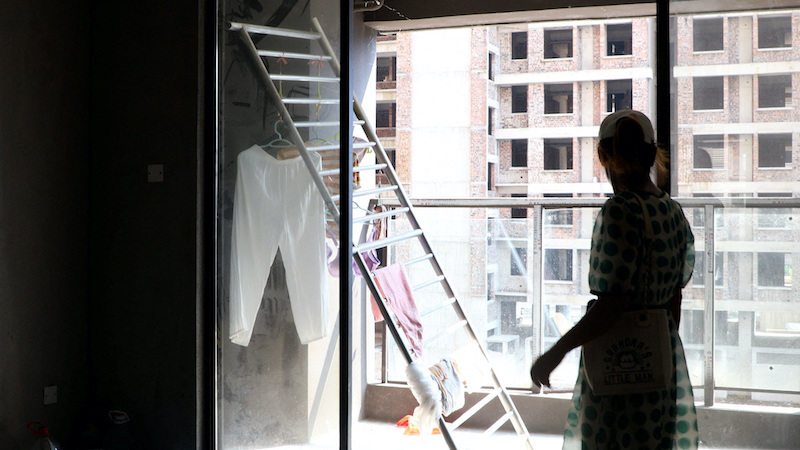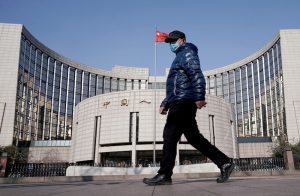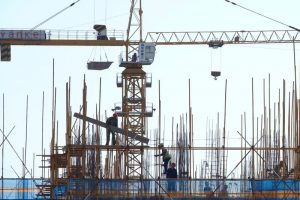Some homebuyers in China – stuck in limbo amid the country’s massive property crisis – have shifted into dwellings out of dire need or to force developers or local authorities to finish the projects.
In the southern city of Guilin, Xu and 20 other buyers living in Xiulan County Mansion share a makeshift outdoor toilet and gather during the day at a table and benches in the central courtyard area.
For six months, home for Ms Xu has been a room in a high-rise apartment she bought three years ago, attracted by brochures touting its riverfront views and the city’s clean air.
But her living conditions are far from those promised: unpainted walls, holes where electric sockets should be and no gas or running water. Every day she climbs up and down several flights of stairs carrying heavy water bottles filled with a hose outside.
“All the family’s savings were invested in this house,” Xu, 55, said from the Xiulan County Mansion complex, her room bare except for a mosquito net-covered bed, a few necessities and empty bottles on the floor. She declined to give her full name, citing the sensitivity of the matter.
Xu and the other buyers are part of a movement of home buyers around China who have moved into what they call “rotting” apartments, to pressure developers and authorities to complete them or out of financial necessity, as numerous cash-strapped builders halt construction amid the country’s deep real estate slump.
Shanghai E-House Real Estate Research Institute estimated in July that stalled projects accounted for 3.85% of China’s housing market in the first half of 2022, equivalent to an area of 231 million square metres.
While some local governments have taken steps to prop up the property market by setting up bailout funds, there have been major impact on buyers like Xu, who paid deposits in advance and are on the hook for mortgages.
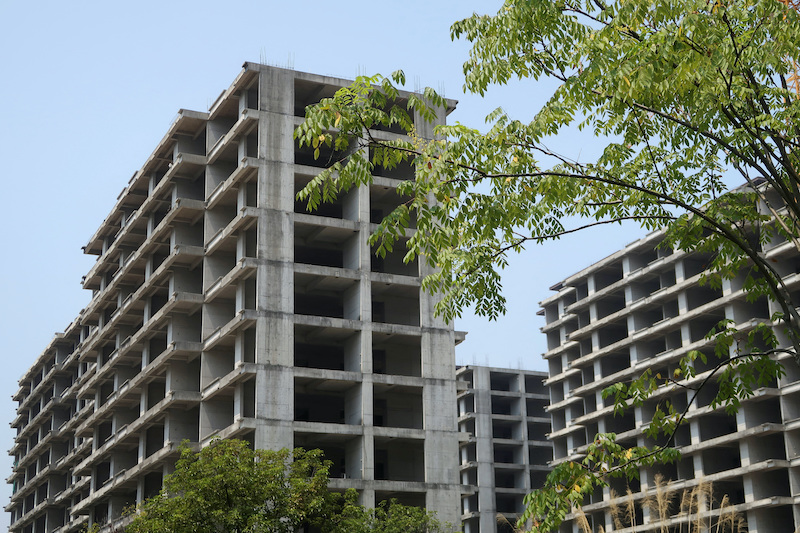
Mortgage Boycotts
The proliferation of unfinished apartments has sparked unprecedented collective disobedience, fuelled by social media: in late June, thousands of home buyers in at least 100 cities threatened to halt mortgage payments to protest stalled construction.
The overall property market is highly sensitive to cases of unfinished apartments because 90% of new houses bought in China are purchased “off plans” while still under construction, Yan Yuejin, research director at Shanghai E-House, said.
“If this issue is not resolved, it will affect property transactions, the government’s credibility, and it could exacerbate the developers’ debt problems,” he said.
China’s deep property slump, along with disruptions caused by strict anti-Covid measures, are dragging on the world’s second largest economy just as the ruling Communist Party gears up for its once-in-five-years Congress next month.
Thousands Caught in Property Crash
Xu bought her two-bedroom, 70 square metre flat in early 2019, about a year after its developer, Jiadengbao Real Estate, started construction and began marketing apartments for around 6,000 yuan ($851) per square metre, which they said would come with facilities such as floor heating and a shared swimming pool.
Work progressed quickly at first, with blocks in the planned 34 tower complex going up one after another.
But in June 2020, Jiadengbao Real Estate hit the headlines after a court accused its parent company of illegal fund-raising and seized 340 million yuan worth of its properties, including a number of flats in Xiulan County Mansion.
Construction stopped in mid-2020, which Xu found out months later, describing her feelings at the time as “crashing from paradise”.
Jiadengbao Real Estate did not respond to a request for comment.
Since the debt crisis erupted in 2021, thousands more homebuyers have been caught in similar predicaments as cash-strapped developers went into bankruptcy or abandoned struggling projects.
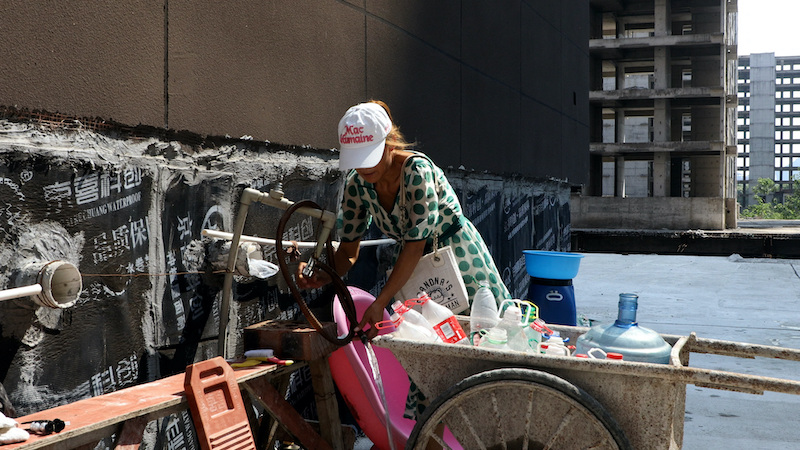
Fenced Off and Overgrown
On a recent day, the main block of buildings at Xiulan County Mansion was surrounded by a tall blue fence while the clubhouse, touted in promotional materials, was covered in a dense undergrowth. Cement mixers, iron poles, and piles of debris lay strewn around.
Xu, who is unemployed, said she bought the apartment for her only son, with the hope that he would be able to raise a family there. She said her son and her husband, who live far away in the northern province of Hebei, blame her for their financial predicament, and no longer speak to her.
“We don’t know how long we will have to live here because the government has not said anything officially,” she said.
She hopes the Guilin government will step in to help. The city government did not respond to a request for comment.
Housing authorities in Baoding, the northern city where Xu is from and where Jiadengbao Real Estate’s parent company is registered, said last November the city government and Communist Party committee had set up a group to resolve the issue.
“If the government really wants to protect people’s livelihoods, and resume construction, we will go back home,” Xu said.
- Reuters with additional editing by Jim Pollard
ALSO SEE:
China Construction Bank to Set up $4bn Rental Housing Fund
Hong Kong Eases Mortgage Stress Test For Property Buyers




